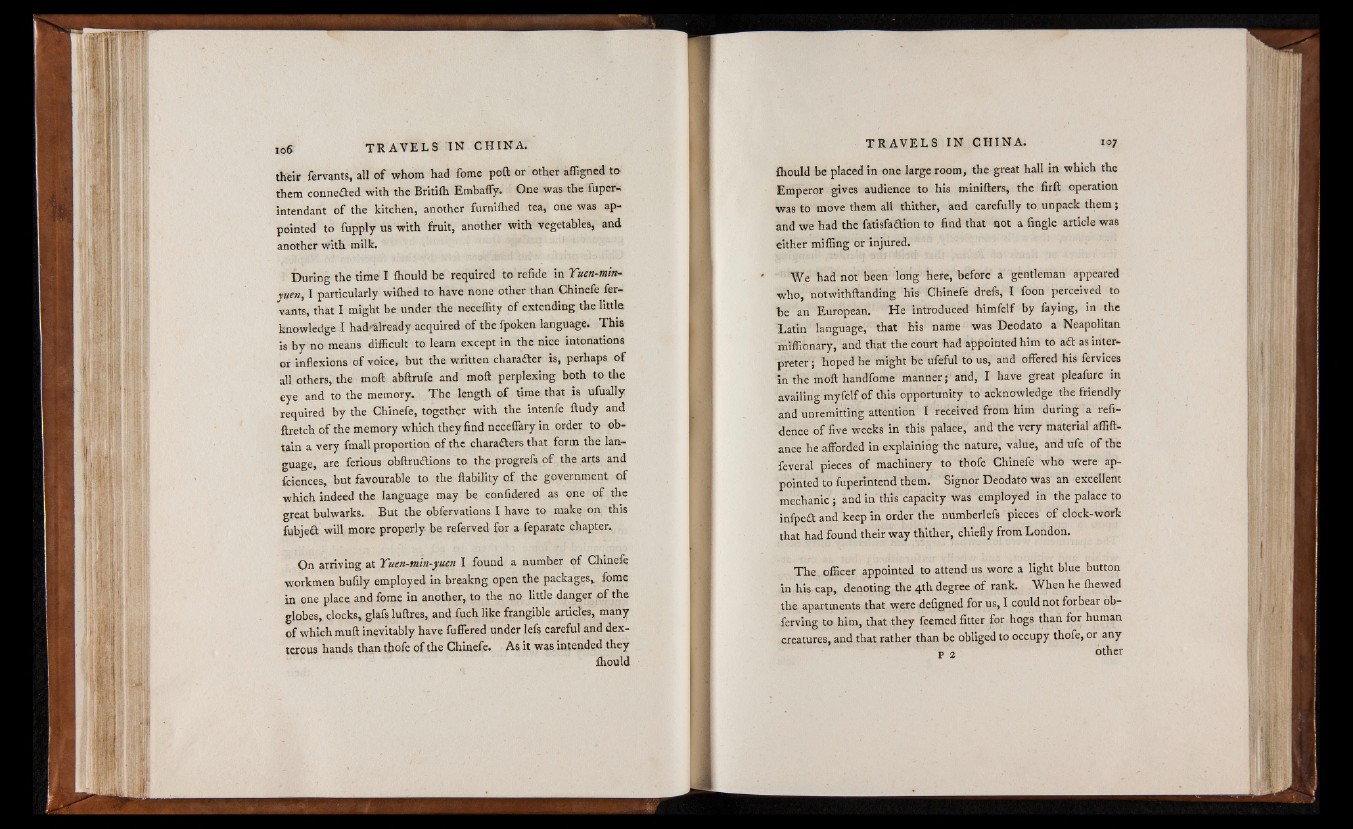
their fervants, all o f whom had fome poft Or other affigned to
them connedted with the Britiih Embaffy. One was the fuper-
intendant o f the kitchen, another furnifhed tea, one was appointed
to fupply us with fruit, another with vegetables, and
another with milk.
During the time I ffiould be required to refide in Yuen-min-
yuen, I particularly wifhed to have none other than Chinefe fervants,
that I might be under the neceffity o f extending the little
knowledge I had »already acquired o f the fpoken language. This
is b y no means difficult to learn except in the nice intonations
or inflexions o f voice, but the written charader is, perhaps o f
all others, the moft abftrufe and moft perplexing both to the
eye and to the memory. The length o f time that is ufually
required b y the Chinefe, together with the intenfe ftudy and
ftretch o f the memory which they find neceffary in order to obtain
a very fmall proportion o f the characters that form the language,
are ferious obftrudtions to the progrefs o f the arts and
fciences, but favourable to the liability o f the government o f
which indeed the language may be confidered as one o f the
great bulwarks. But the obfervations I have to make on this
fubjedt will more properly be referred for a feparate chapter.
On arriving at Yuen-min-yuen I found a number o f Chinefe
workmen bufily employed in breakng open the packages,, fome
in one place, and fome in another, to the no little danger o f the
globes, clocks, glafs luftres, and fu.ch like frangible articles, many
o f which muft inevitably have fuffered under lefs careful and dexterous
hands than thofe o f the Chinefe. As it was intended they
Ihould
ihould be placed in one large room, the great hall in which the
Emperor gives audience to his minifters, the firft operation
was to move them all thither, and carefully to unpack them ;
and we had the fatisfadtion to find that not a fingle article was
either miffing or injured.
W e had not been long here, before a gentleman appeared
who, notwithftanding his Chinefe drefs, I foon perceived to
be an European. He introduced himfelf by faying, in the
Latin language, that his name was Deodato a Neapolitan
miffionary, and that the court had appointed him to aft as interpreter
; hoped he might be ufeful to us, and offered his fervices
in the moft handfome manner; and, I have great pleafure in
availing myfelf o f this opportunity to acknowledge the friendly
and unremitting attention I received from him during a refi-
dence o f five weeks in this palace, and the very material affift-
ance he afforded in explaining the nature, value, arid ufe o f the
feveral pieces o f machinery to thofe Chinefe who were appointed
to fuperintend them. Signor Deodato was an excellent
mechanic ; and in this capiacity was employed in the palace to
infpedt and keep in order the numberlefs pieces o f clock-work
that had found their way thither, chiefly from London.
T he officer appointed to attend us wore a light blue button
in his cap, denoting the 4th degree o f rank. When he ffiewed
the apartments that were defigned for us, I could not forbear ob-
ferving to him, that they feemed fitter for hogs than for human
creatures, and that rather than be obliged to occupy thofe, or any
£ 2 other